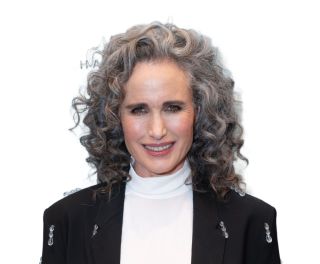Sex
How Women Are Leading a Relationship Revolution
"Queen-Agers" are listening to their own voices, and libidos.
Posted November 16, 2023 Reviewed by Lybi Ma
Key points
- We’re in the midst of the Midlife Women’s Renaissance.
- Today, women in midlife choose partners whose looks they like, and who make them feel good.
- Younger men and older women are creating relationships based on mutual desire and appreciation.

By Wednesday Martin, Ph.D., and Treena Orchard, Ph.D.
Headlines are dubbing 2023 “The Year of the 50+ Woman,” and even suggesting we’re in the midst of a midlife women’s renaissance. Of course, we’re more accustomed as a culture to women fading into invisibility with age. The current social shift is especially undeniable because of the sheer number of high-wattage female celebrities reclaiming the spotlight and forcing the public to reckon with not just the way their stories have been told, but their very existence. Think Michelle Yeoh winning an Academy Award for Best Actress at 60 and intoning, “Ladies, don’t ever let anyone tell you you’re past your prime!” Or Viola Davis, Helen Mirren, and Andie MacDowell commandeering the catwalk at Paris Fashion Week, the latter rocking silver dresses and wildly natural silver locks.
There has been less talk about the sexual lives of the women referred to by the snowballing Instagram hashtag #Queen-Agers. But there is a radical shift—arguably a revolution—taking place in how heterosexual women over the age of 50 date, who they date, and how they see themselves. And it’s changing our most basic ideas about who we all are.
Sienna Miller’s relationship and pregnancy with Oli Green, 15 years her junior, and the double shock of a woman hiring a much younger male sex worker in the film Good Luck to You Leo Grande are just two recent high-wattage examples of what anthropologists call “age hypogamy”—women dating younger men. But this isn’t just a celeb privilege. According to an AARP poll, 34 percent of U.S. women above the age of 40 are romantically involved with younger men. Another study found that women in age-hypogamous relationships reported the highest levels of romantic satisfaction and commitment.
As anthropologists interested in human mate choice, the evolution of gender roles, and sexuality, we are curious about the uptick in older women dating younger guys. What do these relationships tell us about where we are and where we’re headed as a culture?
The driving factors
These pairings are partly pragmatic. Men in midlife often date or re-partner with younger women, removing themselves from the candidate pool for women their own age. This opens the door for younger men as potential partners. As a female participant in our self-reporting social media study said: “I’ve mainly hooked up with younger men. First, because there were barely any men my age on dating apps. Then I realized I enjoyed [younger men’s] company more.”
This is partly possible because women are actively rejecting ageist stereotypes about being in a period of desiccation and decline. Data show them making daring life choices that alter not just their own lives but our social fabric, and in dramatic ways. They initiate divorce more often than women under 50, and they have more savings than younger women. They engage in meaningful self-care, including exercise, healthy diets, and nurturing friendships that enhance and extend their lives. They are also nearly twice as likely as men to be in therapy.
It makes sense, then, that many women in midlife report feeling confident and having “fewer f--ks to give.” As clinical psychologist Robi Ludwig says about this life phase, “There’s a strong impulse to listen to one’s own voice and reclaim one’s own life.” Androphilic women this age also find themselves freed from pregnancy worries and may experience sex as purely recreational for the very first time. It can also be a time of exuberant sexual expression for women, including exploring non-monogamy and sexual fluidity.
From flourishing gardens of friends, professional networks, wellness, and enhanced self-esteem in spite of negative cultural messaging, women in midlife are creating extraordinary conditions of self-empowerment, including the power to choose younger partners.
The pleasure to choose
Studies confirm that while in the past women tended to choose men with wealth and power, today they are more likely to choose partners whose looks they like, and who make them feel good. Also, younger guys often take care of themselves in the same ways—physically, psychologically, and emotionally—as women in midlife do. As one older woman described her marriage to a man 19 years younger: “I love how young I feel around him, how great the sex is, how much I have learned about and accepted my sexual needs and desires because of our relationship. I feel like we have come together to help each other heal different parts of ourselves.”
Other women described delight in finding men with the relational skills and ideological views they value: “He’s [younger] but we’re much more on the same page than I am with men my age. We both do the work. We have growth mindsets. He cares about things I care about–feminism, Black Lives Matter.”
And then there’s the sex. Not a few women told us bluntly of the younger men in their lives and their bedrooms, “Their [penises] work better and they can keep up with [my libido].”
Masculinity in flux
Younger men are having a revolution of their own, increasingly rejecting traditional “milestones” of heterosexual masculine success like fatherhood and lifelong partnerships. Being with an older woman may fit the bill perfectly. As one man told us: “I don’t like feeling pressured to talk about kids and commitment on the third date, and that’s not an issue [with her]. [She’s] already had all that. It’s about the present and connecting.”
Additionally, many of the Gen Z and Millennial men we interviewed desire a way of being centered around inclusion, equity, and an ethic of caring, or caring masculinities. They seek to explore different facets of life—world travel, social activism and protest, psychedelics, connection, and artistic expression—rather than automatically buying into more hegemonic (toxic) masculinity. This can translate into rethinking the ingrained cultural assumption that the best female partner is a young, nubile one. Men who date older told us repeatedly that they preferred that older women were reliable, aspirational partners who exceeded younger women’s capacities at everything from scheduling dates to instruction in the bedroom. One explained: “[Older women] are much better at communicating what they want inside and outside the bedroom, but in a constructive, non-demeaning, non-threatening way, which has made me a better lover.” Another complained that women younger than him are often “flakes” about even showing up.
Other men who enjoyed dating older said they valued the very experience of being invited into an older woman’s social and emotional universe, which they described as “exciting,” “sophisticated,” and “worldly.”
Conclusion
Fifty-six years ago, The Graduate suggested that older woman-younger man pairings were disreputable and doomed. Today, however, younger men and older women on screen and in life are often creating relationships based on mutual desire that torch traditional gender roles and sexual scripts. Contrary to the stereotypes that still circulate in the entertainment and wellness industries, women do not naturally lose their sexual edge or desirability as they age. They are increasingly recognized as beacons of erotic and cultural capital. And younger men, who view their sexual wisdom, autonomy, and competence as aspirational, are here for it.
Wednesday Martin, Ph.D., is a social scientist and the bestselling author of Primates of Park Avenue, UNTRUE: Why Nearly Everything We Believe about Women, Lust, and Infidelity Is Wrong and How the New Science Can Set Us Free, and The Button, an Amazon Original Story about the clitoris. Treena Orchard, Ph.D., is an Associate Professor and Faculty Scholar in the School of Health Studies at Western University. Her book Sexy, Sticky, Sad: Swipe Culture and The Darker Side of Dating Apps will be published in April 2024.




